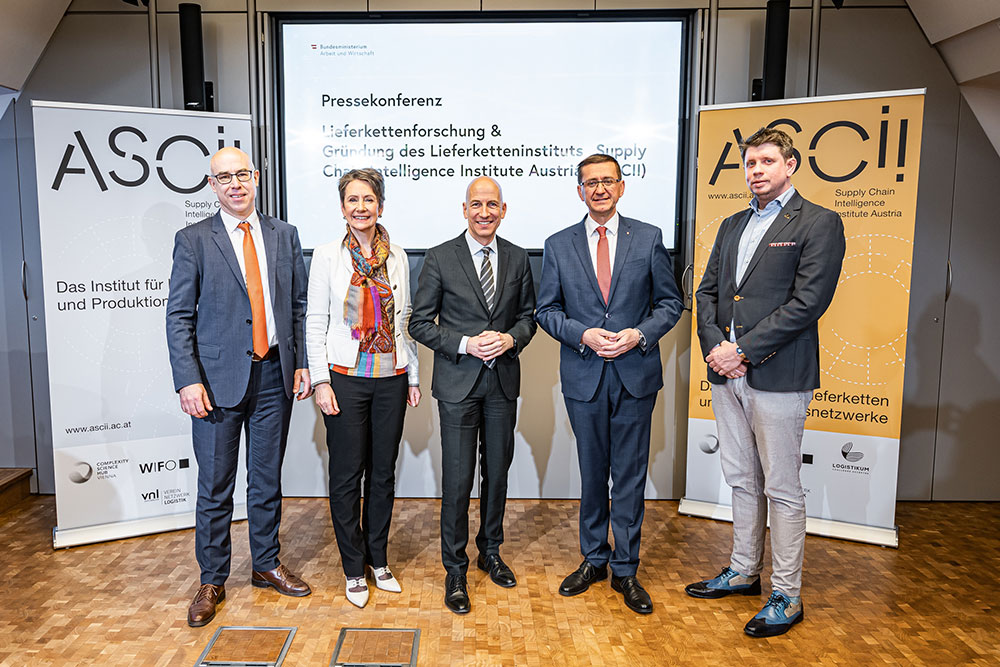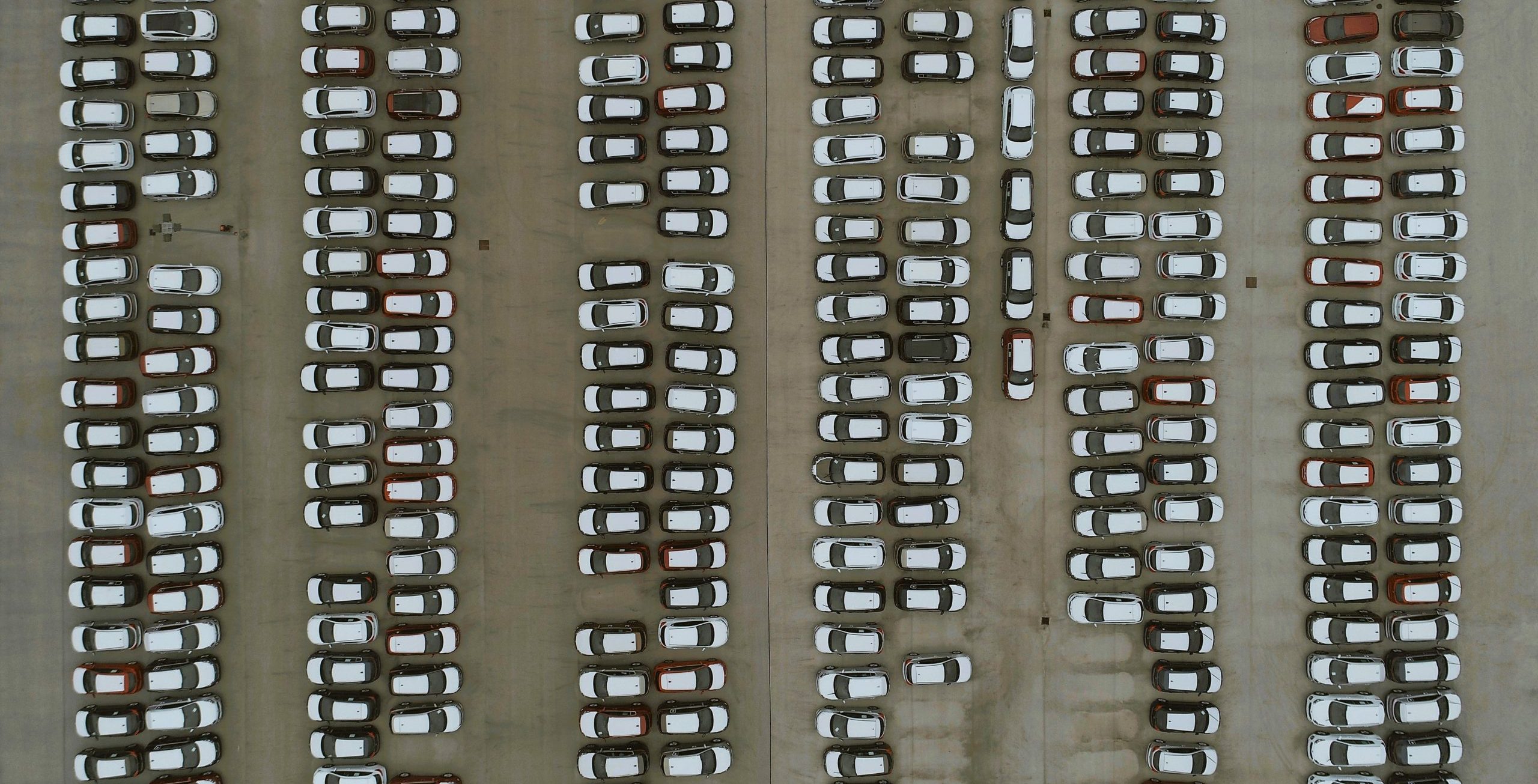Securing supply chains, knowing strategic dependencies and proactively shaping sustainable, as well as efficient production networks — with these goals, the Supply Chain Intelligence Institute Austria (ASCII) aims to put Austria in a leading role worldwide. The the founding organizations of the institute are Complexity Science Hub, FH ÖÖ, VNL and WIFO. ASCII was launched at the Federal Ministry of Labor and Economics today.
The global, European and Austrian production and logistics networks are facing major and diverse challenges. The crises of the last few years revealed vulnerabilities in supply chains and production networks. For example, there were bottlenecks in the availability of raw materials, packaging materials, chips or cable harnesses for car manufacturing, which caused delays in production and delivery. This in turn led to striking, economic damage.
“Such disruptions, even to otherwise resilient supply chains, clearly show how important it will be to answer the multitude of questions around creating more sustainable and resilient supply networks,” explains ASCII Director Peter Klimek.
“In order to find long-term answers to these questions, the newly established Supply Chain Intelligence Institute Austria (ASCII) is focusing on interdisciplinarity,” says Klimek. Together with him, scientists from various research areas and institutions will work on data-driven analytical tools to safeguard supply chains and ensure supply security, incorporating both economic policy and business perspectives.
“The aim is to provide decision-makers with solid information for achieving the Austrian and European goals of secure value creation and climate neutrality,” says Klimek. The project is being implemented in close collaboration between the founding organizations (Complexity Science Hub, Logistikum of the Upper Austrian University of Applied Sciences, Verein Netzwerk Logistik (VNL) and WIFO).
The supply chain issue is associated with overarching risks (e.g., geopolitical disagreements, trade wars), as well as with the impact of climate change, requiring new production structures and business models.
The project is supported by the Austrian Federal Ministry of Labor and Economics (BMAW) with 7.5 million euros, as well as the state of Upper Austria with 2.5 million euros.



